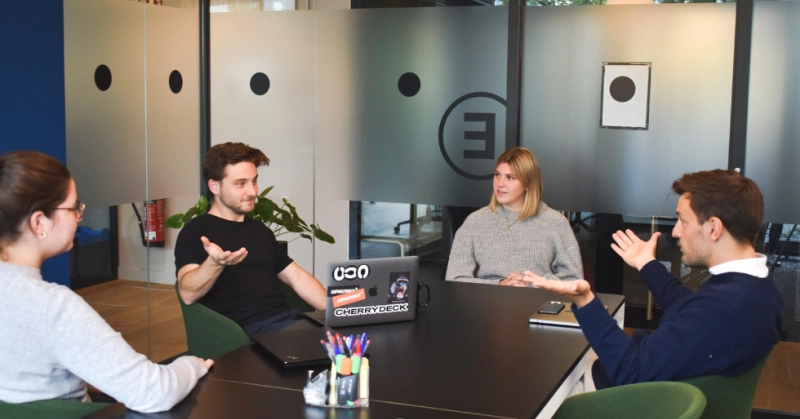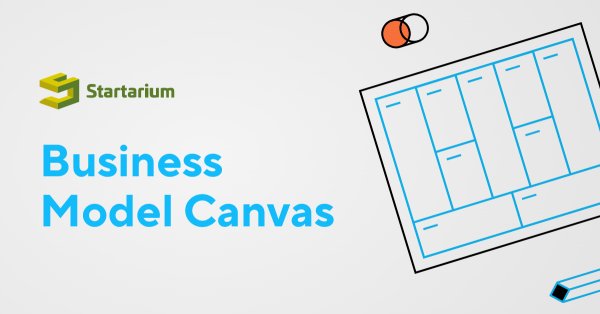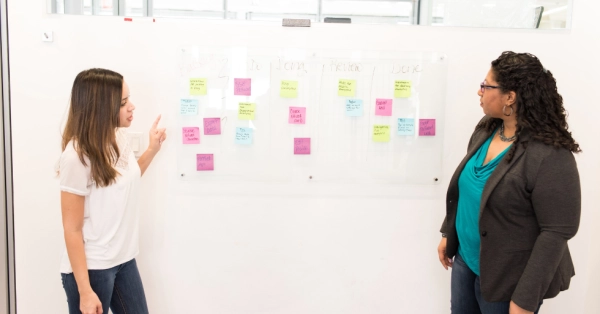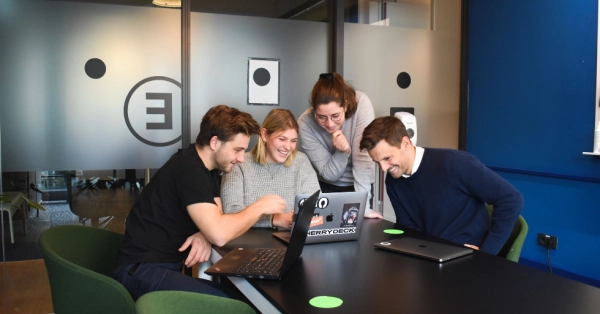When you're looking for a new person for your team, you're looking for more than just an employee: yes, you need someone with a certain experience, but some jobs sometimes require rarer skills as well. In order to find this person, you have to make full use of 3 personal skills

The three skills that bring you success in business can help you identify and attract talent to your team: creativity, proactivity and customer/candidate focus.
Creativity
It helps you think laterally in recruitment. Competition for talent will play an extremely important role in the success of your start-up. You compete for the best people with several more or less direct competitors, but also with large companies that have a strong employer brand. And international mobility in certain fields also generates competition for talent from global competitors that do not yet operate in Romania. What if you had access to an additional candidate pool? A blue ocean where you find enough candidates so you don't have to compromise when expanding your team.
To do this, you need to be creative and identify candidate profiles that you would not have thought of in the first instance for your roles. Easier said than done. You can start by defining the transferable skills you need in your team. To identify them, you need to analyze in depth what the skills, attitudes and knowledge that differentiate a mediocre professional from an exceptional professional in your field are:
-
Set aside industry and job specific knowledge. What would these skills look like now?
-
Our objective is to identify these skills that can be transferred from other fields.
-
Such as analytical thinking, very good organizational and delegation skills, communication or even leadership skills.
Defining these transferable skills will help you break out of a linear recruitment process where you only interview candidates who had the exact same job or a very similar job in another company and allow you to expand the pool of candidates from which you choose your future colleagues.
The next step is to identify the industries or fields that excel at preparing candidates with the skills you need. If we are talking about a role that requires communication skills, you can recruit from the tourism industry, call-centers or even from retail. You can choose from candidates who are trapped in certain jobs and who will be grateful to you for giving them the opportunity to change their field of activity.
Recruit continuously
Proactivity has its role in recruitment. What if you recruited customers only a few months a year? Customers who are not active then, would no longer be able to purchase your services or products. And we apply this paradigm to peer recruiting, where that happens a lot.
We recruit reactively only when a colleague leaves or we have recruitment campaigns to grow the team. Wouldn't it be worth it to be proactive in recruiting? What would be the benefits if you could reserve one or two days every month to meet with potential candidates?
For starters, this would expand the number of interviewed professionals and increase your chances of proactively attracting very good candidates to your team, many of them professionals who would not have been available in the time interval you used to do your recruiting in the past. If a colleague leaves or you expand the team, this proactivity will considerably reduce the time required to fill in the vacant position.
How can this proactivity be put into practice? Schedule a few interviews every month for key positions in your organization. Gradually, as the business grows, an HR team will help you extend this proactivity to several more important roles in your start-up.
Customer focus or customer obsession
These are buzzwords we hear often. How about changing the paradigm for employees? What would we do differently if we treated candidates in a way similar to that in which we treat customers? For starters, I think recruitment ads would look different.
I don't think we have product or service descriptions that are as bland and colorless as most recruitment ads. The first step would be to add some color and personality to the way we sell the job. What is the experience of candidates going through our selection process?
We can import from the customer's area an easier application process and elements that ensure a pleasant experience during interviews. What are the differentiators? The identification of the elements that positively differentiate the experience of being an employee in our company and communication of such elements during the recruitment process.
In conclusion:
-
Creativity helps us think laterally and see potential candidates where our competitors don't.
-
Proactivity makes us meet candidates when we would not have normally done so.
-
Customer dedicated processes can teach us how to improve the experience of those we come into contact with.
I hope these tips will help you find new colleagues that meet your expectations!























